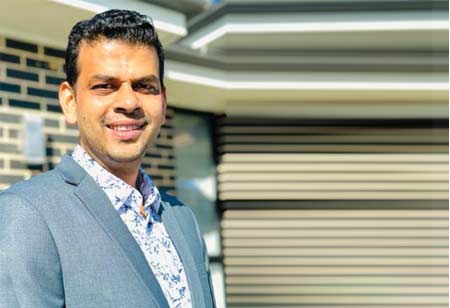Thank you for Subscribing to Healthcare Business Review Weekly Brief

Biomedical engineering/ clinical engineering
Healthcare Business Review
BACKGROUND
WNSWLHD is home to a population of 278,800 people living across a large geographical area of 246,676 square kilometres, which includes 13% Aboriginal people and 12% of people aged 70 and over. The management of electromedical equipment across the Western NSW Local Health District is the responsibility of the Biomedical Engineering (BME) Department.
Day to day activities of BMETs are challenging as the clinical staff relies on the equipment for patient care, and it is the responsibility of the technicians to make sure all devices are ready and safe to use for patients. Response to the reactive work varies depending on the issue, and not every day is same. The BMETs prioritise the work according to the criticality of the incident. The normal duties of BMETs include but are not limited to Corrective and Preventative Maintenance, Acceptance Tests, Recall and Asset Management, Inventory Control, Procurement of parts and devices, Asset disposal, and project delivery. It is the team’s responsibility to make sure the standardisation of the devices is met so that the technicians can respond or act on the issues in a timely manner. As technology changes, the BME Team is supplied with all necessary tools and training to do the work on site and has access to various Original Equipment Manufacturer (OEM) Manuals. Technicians work closely with OEM regarding the procurement of parts or repairs/calibration of the devices, which cannot be performed onsite. Constant consultations with the Clinical Team are conducted to ensure the devices are fit for purpose and rectify any device issues.
REPORTING & DATABASES
BME Services falls under the Directorate of Corporate Services and Clinical Support and reports to Jeff Morrissey, Director-Corporate Services & Clinical Support.
Any incident caused by device failure/Patient harm is reported through the IMS+ Database.
BME Team uses AFM Online to manage the assets to meet the Asset Management Policies, which are in place within NSW Health.
Recall Management was reported through the Safety Alert and Recall Database
PROJECTS
There are a lot of projects happening in Biomedical Space within the LHD, but two main tasks are as mentioned and not limited to.
It is the team’s responsibility to make sure the standardisation of the devices is met so that the technicians can respond or act on the issues in a timely manner
ENDOSCOPE REPLACEMENT PROJECT
WNSLWHD has a fleet of 399 Surgical scopes, compromising 169 Flexible scopes and 230 Rigid Scopes, of which most of the flexible scopes were 12 years old. In November 2021, the government announced $ 6 million for Biomedical upgrades within the LHD. After consultation, LHD decided to upgrade the current fleet considering the benefits, and is as follows.
• The benefits of upgrading the fleet align with the WNSWLHD Strategic Plan, precisely, Goal 3, for “World Class Rural Health Care” and the plan’s strategy to “Deliver safe, high quality, value-based, effective and appropriate health care.”
• The reduction of delays in flexible endoscopy lists due to scope service issues or issues with older model scopes.
• Improved technology to potentially allow earlier detection of mucosal changes.
• Reduction in re-booking patients requiring treatment with paediatric colonoscopes in Forbes and Parkes
• Reduced pressure on staff processing/tracking wide number of service issues for a period.
• The benefits of the investment in upgrading and expanding the WNSWLHD fleet of scopes in 2023 includes clinical benefit to surgeons using the latest technology.
• Reduction in case delays due to scope unavailability.
• Reduced pressure on turnaround time in CSSD and endoscopy.
• Reduction in scopes unavailable due to service issues









